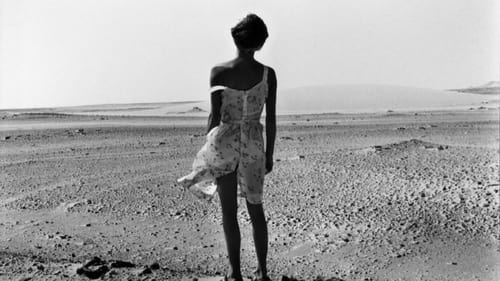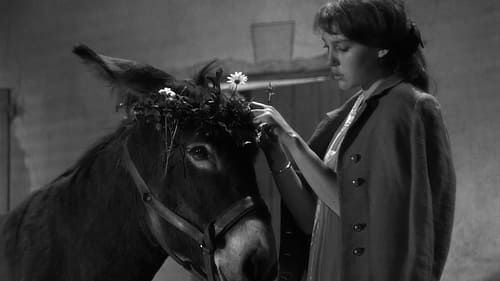
Director
Pierre Guyotat at home, between 2002 and 2009: scenes from a writer’s life. First he organises his library : each book is an occasion for comments, reminiscences, questionnings. Then he is seen at work, preparing an edition of his Notebooks with his assistant, based on manuscripts from the 1960s. He is finally seen in his room, sitting in bed, discoursing on french kings and working out a text out loud, in a hypnotic self-dictation. Because Pierre Guyotat offers himself unrestrainedly to Jacques Kébadian’s attentive filming, this most precious of films gives us a rare glimpse into a writer’s intimacy: into his labour and passion. (Cyril Neyrat)

Writer
In May 1968, workers, students and young people rise up against the morality and power of the establishment. Faculties and factories are under occupation. Barricades are erected. Paving slabs are launched. Words give way to actions. This is the confrontation. These images bear witness to the men and women who, in their indignancy, march towards their revolution. 50 years ago, as part of our ARC collective, we filmed the uprising of May and June 1968. Out of this material and scenes borrowed from our other filmmaker friends, we created this film.

Director
In May 1968, workers, students and young people rise up against the morality and power of the establishment. Faculties and factories are under occupation. Barricades are erected. Paving slabs are launched. Words give way to actions. This is the confrontation. These images bear witness to the men and women who, in their indignancy, march towards their revolution. 50 years ago, as part of our ARC collective, we filmed the uprising of May and June 1968. Out of this material and scenes borrowed from our other filmmaker friends, we created this film.

Director
The Hovanessian family immigrated to the United States in winters 1994. Vartan and Anahide allowed me to share the last days before their departure from Erevan. The young Armenian Republic, still in shock from the earthquake and in conflict with Azerbaijan for the autonomy of Karabagh, was suffocated by a blockade that made the emergence of a new economy difficult.

Director
In March 1996 the French government decided to expel all African family who did not have papers from the city of Paris. During a six month period of time, the director followed many of the families and got there testimonials about how it felt to be discriminated against by the French on film. Eventually the documentary focuses on one man who emerges at the center of the fight to not to be sent back to Africa. In the end he is sent back to his native Mali, the director and his camera accompany him.

Paul
The familiar conflicts of a film director planning to make a movie about his life and the confrontation he has with his wife, an actress who was turned down for such project in which she wanted to play herself.

Director

Editor
A man invites a woman to share his room in a hostel and gradually falls in love with her.

Director

Director
"No Return Possible": these three words cross the identity papers of the Armenians who left Turkey after the massacres of 1915.

Director
"Part of the series grands jours et jours ordinaires (big days and ordinary days), UN CAFE UN details a small coffee shop and bistro in Paris over the course of one long working day, carefully registering small moments (like one businessman’s very long gulp of his first beer, or a bored child soliciting the attention of the various old ladies who flock to the espresso counter on the regular.)" - Spectacle Theater

Young trans women make the streets of Paris their cabaret. Their dreams are quickly overtaken by reality.

Director

Director
France, 1972. Albertine, a teenager in rebellion against school, the rancid family and religion, asserts her rights to a sexuality without obstacles. Wiith her friends, and the right to the abortion for the minor ones. With her friends, she campaigns for the rights to sexual pleasure and abortion for minor girls.

Assistant Director
젊은 아내가 아무런 설명도 없이 자살을 하자 내성적인 전당포 주인은 두 사람의 삶을 함께 돌아본다.

Le dragueur
젊은 아내가 아무런 설명도 없이 자살을 하자 내성적인 전당포 주인은 두 사람의 삶을 함께 돌아본다.

Director

Director

First Assistant Director
많은 사람들이 이 작품을 로베르 브레송의 대표작이자 걸작 중 하나로 꼽는다. 그만큼 이 영화는 브레송이 일생 동안 만든 '시네마토그라피'(단순히 '시네마'가 아니라)의 대표적인 특징들을 고스란히 담고 있다. 병든 엄마와 아직 갓난아이인 동생을 돌봐야 하고, 의붓아버지에게 학대받으면서 학교에서도 철저하게 소외되는 한 소녀가 있다. 이 소녀에게 찾아오는 평범하지 않은 갑작스러운 사랑과 연이은 엄마의 죽음. 그리고 결국 종국에 맞닥뜨리게 되는 소녀의 자살. 단순한 스토리라인은 배경음악이나 연기, 카메라워크에 의한 어떠한 감정적인 조장도 없이 단선적이고 건조하게 진행된다. 거기에다 부엌에서 그릇이나 식기를 다루는 소녀의 손과 같은 무의미한 듯하지만 범상치 않은 신체 일부의 클로즈업이 곳곳에 배치되어 있다. 브레송은 눈물샘을 자극하는 감각적인 영화가 아니라, 마치 손으로 만지는 것 같은 촉각적인 영화를 만들어내었다. 지금까지 대면해온 영화들 속에 어떤 식으로도 포섭되지 않는 이 영화를 보면서 그 익숙하지 않음이 오히려 소름끼치고, 눈물을 보일 수 없도록 만들지만 미어지게 가슴이 아픈, 흔치 않은 감동을 경험하게 될 것이다.

Director
Story of the life of an extraordinary man, who with Lenin, was the symbol of the Revolution of 1917.

Assistant Director
당나귀는 한 농장의 어린아이에게 사랑받는 애완동물로서 인간과 첫 인연을 맺게 되지만, 곧 한 젊은 여성의 손에 넘겨지면서 힘든 삶의 여정을 시작하게 된다. 그 여성의 삶은 잔인한 애인에게 능욕당한 뒤 비참하게 살해되는 것으로 끝을 맺고, 새로 당나귀의 주인이 된 그녀의 애인은 당나귀에게 매질을 하며 괴롭힌다. 그러나 그녀의 애인 역시 불행한 최후를 맞게 되고, 당나귀는 빵집 주인의 손을 거쳐 가이드 동물이 되기도 하고, 서커스단의 스타가 되기도 하며, 쟁기를 끌 수밖에 없는 초라한 신세로 지내기도 한다. 이러한 힘든 삶이 끝나갈 무렵 당나귀는 한 나이든 방앗간 주인의 소유물이 되는데...

Director
From the sculpture of Jean-Robert Ipoustéguy.












